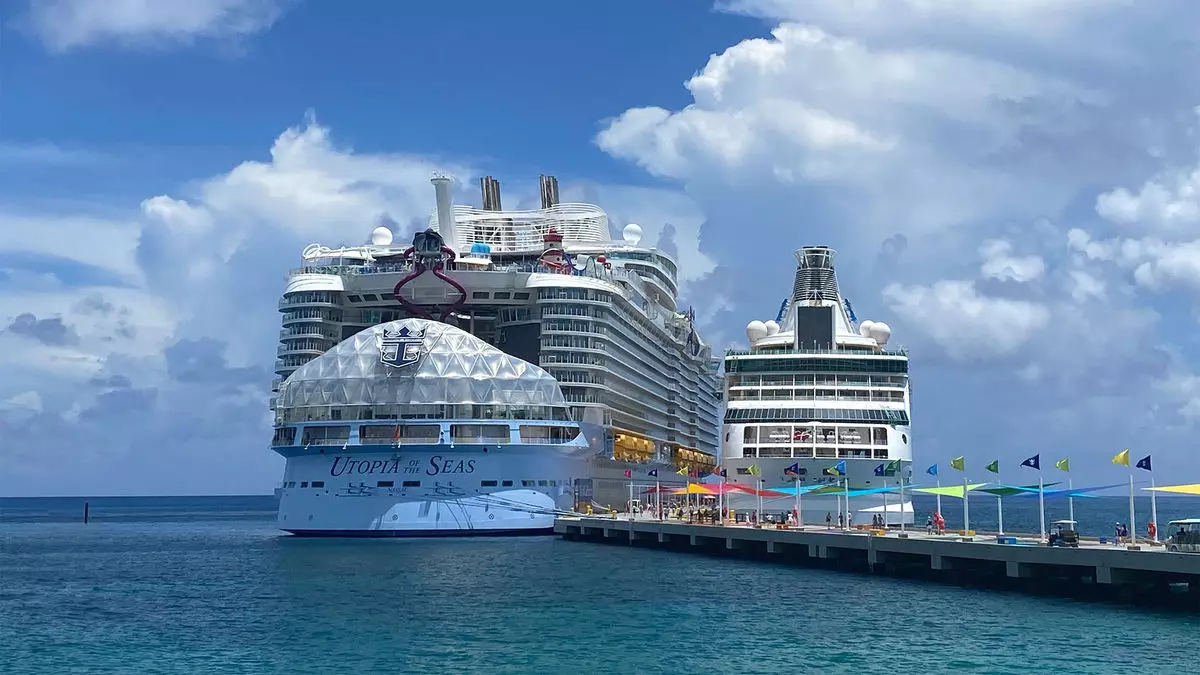Royal Caribbean Group has experienced a significant influx of first-time cruisers in 2023, a trend highlighted by CEO Jason Liberty during the company’s Q3 earnings call. The debut of the Utopia of the Seas, the company’s sixth Oasis-class ship, is a prominent factor in this growth. Since setting sail from Port Canaveral, Florida, in July, Utopia’s three- and four-night cruises have proven particularly alluring to novice cruise-goers. Remarkably, this new vessel is appealing predominantly to millennials and younger travelers, reflecting a shift in demographic engagement that could shape the future of cruising.
Liberty emphasized the “incredible demand” for the Utopia cruise experiences, noting that the interest has notably exceeded their preliminary expectations in both ticket prices and onboard revenues. The enthusiasm surrounding the Utopia indicates a potential turning point for the cruise industry, as it appears to attract a fresh wave of travelers eager to experience this mode of vacationing.
A significant aspect of Royal Caribbean’s continued success is the increasing trend of passengers engaging in pre-cruise activities. Over 70% of travelers are opting to purchase onboard activities before their trips, which leads to a striking observation: those who invest in experiences in advance tend to spend twice as much onboard compared to those who make purchases during their cruise. This purchasing behavior signifies an evolving consumer mindset where travelers prioritize their experiences well in advance, integrating technology, such as AI-driven pre-cruise channels, to enhance their journey.
This shift not only contributes positively to Royal Caribbean’s financial health but also signifies a broader trend in consumer behavior. Passengers are actively seeking to customize their cruise experiences before departure, indicating a desire for personalization and greater value from their vacations.
Despite prevailing economic uncertainties, Liberty maintains a confident outlook. He reported that bookings for 2025 have already surpassed those for 2024, underscoring sustained demand and indicating resilience in the cruising sector. Average occupancy rates remain consistent with previous years while currently commanding higher prices, showcasing the company’s ability to optimize yield.
The macroeconomic environment seems favorable for hospitality and leisure industries, with American households reportedly at their wealthiest in years— bolstered by wage growth and low unemployment rates. As spending on leisure experiences outpaces other expenditures, the cruise segment appears to be positioning itself as a preferred option for travelers seeking memorable vacations.
Royal Caribbean Group’s Q3 financial performance was noteworthy, reporting a net income of $1.1 billion, an increase from $1 billion the previous year, alongside a revenue jump from $4.1 billion to $4.9 billion. These promising results led to an upward revision of the company’s full-year earnings and yield growth expectations, now projected at a remarkable 10.8% to 11.3% for the year.
Furthermore, Liberty’s remarks highlight key demographic shifts: millennials, families, and active travelers are increasingly turning to cruise vacations. This trend not only suggests a thriving future for Royal Caribbean but also a reinvigoration of the cruise industry’s appeal in a post-pandemic world. As more first-time cruisers embark on their voyages, the company effectively positions itself to meet this evolving demand.


Leave a Reply